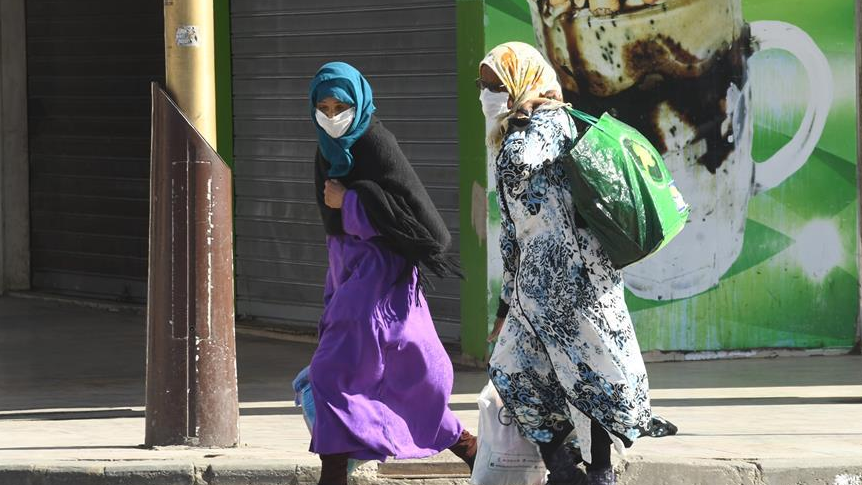
Editor's note: Sally Pairman is Chief Executive of the International Confederation of Midwives. Roopa Dhatt is Founder of Women in Global Health. The article reflects the author's opinions, and not necessarily the views of CGTN.
As the world struggles to control COVID-19, the global health workforce is under increasing strain – and woman-centered, midwife-led care is more at risk than ever.
The current crisis is stretching health-care facilities to the limit, as shortages of both staff and resources place intense pressure on services. accounts from midwives on the front line highlight human-rights concerns, the over-medicalization of birth, and growing distress among them and pregnant women alike. In the battle to contain COVID-19, care for mothers-to-be has become a low priority.
Midwives are vital to the health and protection of women in childbirth. In 2017, an estimated 295,000 women worldwide died from causes related to pregnancy or childbirth – the vast majority of them in low-income and lower-middle-income countries. Most of these deaths were preventable. Throughout this health emergency, we must ensure that midwife-led care is maintained as far as possible.
As it stands, midwives in all regions are facing acute shortages of personal protective equipment (PPE) and other infection-control supplies, including hand sanitizer, which means they must face painful and traumatic decisions. Should they risk their own families' health in order to care for women in childbirth? How should they provide assistance without PPE, given that they are unable to maintain a safe distance from the women in their care? Is it better to provide normal care anyway, even at the risk of infecting their patients?
There also is mounting evidence that the over-medicalization of childbirth has increased during the pandemic. The World Health Organization recommends that caesarean sections be performed only when medically justified, but there is growing concern from health-care professionals and the wider global health community about the number of unnecessary and inappropriate procedures. This troubling pattern suggests a weakening of women's right to make informed decisions regarding childbirth and their overall health.
Where women are given the space to decide, they are increasingly choosing to give birth at home with the support of a midwife, or in a midwife-led unit, rather than in a hospital. This shift reflects not only fear of COVID-19, but also many women's realization that they can opt for more decentralized services that cater to their needs. In the case of low-risk pregnancies, national governments should support this decision.

Women wearing masks walk on the streets in Rabat, Morocco, May 18, 2020. /Xinhua
Women wearing masks walk on the streets in Rabat, Morocco, May 18, 2020. /Xinhua
But decentralizing childbirth poses its own challenges. In particular, we must provide adequate resources to support it, and respect and recognize the work carried out in homes to ensure the safety of pregnant women. Increased pandemic-related concerns regarding pregnancy have made the midwife's role in providing antenatal care even more important. In many cases, however, home services are unrecognized and unpaid, and continue even during PPE shortages, putting both midwives and patients at risk.
Many have been shocked by our health-care systems' lack of basic resources and inadequate capacity in the face of a global pandemic. But such shortcomings should come as no surprise. Health-care staff are overworked and underpaid, have inadequate training opportunities, and are subject to restrictive policies. For example, midwives often are not recognized as frontline health-care workers.
These problems are still more acute in midwifery, which, even before the pandemic, had long struggled to gain recognition as an autonomous profession – and to secure access to the funding, resources, and training that goes with it. And now the failure to invest in maternal health services, and to pay women fairly for their contributions to the health sector, has weakened the global response to COVID-19 and put women at greater risk of infection, especially in lower-middle-income countries.
To keep midwives safe and enable them to provide women-centered care, governments, international donor agencies, and philanthropic organizations must make funding for maternal health services a high priority. That includes supporting community-based care, which is crucial at a time when facility-based services are declining. Without such assistance, midwives will struggle to reach the most vulnerable.
The international community must support the female health workforce and allocate funds directly to organizations that represent midwives as front-line maternal health-care providers. We must trust women at the center of health-service delivery to use funding as they see fit, and to invest in the protection and resources they need to ensure the continued safety of our communities.
Copyright: Project Syndicate, 2020
(If you want to contribute and have specific expertise, please contact us at opinions@cgtn.com.)